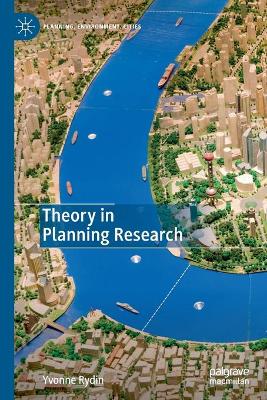Planning, Environment, Cities
2 total works
The second edition of this innovative introduction to urban and environmental planning combines comprehensive coverage of institutions and procedures with detailed analysis of the economic and political context of planning, its historical development and competing theoretical approaches. Extensively revised and updated to take account of changes in the context and content of planning into New Labour's second term, extensive use is made throughout of case studies, summary charts and exhibits to bring the subject to life.
Doing research is an essential element of almost all programmes in planning studies as well as related areas such as geography and urban studies, from undergraduate, through Masters to doctoral programmes. While most texts on such research emphasise methodologies, this book is unique in addressing how theoretical frameworks and perspectives can inform research activity. Providing both a concise introduction to a wide range of such theories and detailed engagement with cases of planning research, it provides the reader with the insights necessary to conduct theory-informed research. It offers an understanding of how the choice of a theoretical framework has implications for the focus of the research, the precise research questions addressed and the methodologies that will be most effective in answering those questions. Through practical advice and published examples it will support planning researchers in doing stronger, more widely-applicable research, which answers key questions about planning systems and their role within our societies.

